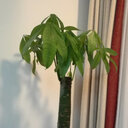Preventive effect of crocin in inflamed animals and in LPS-challenged RAW 264.7 cells.
Keywords
Abstract
Gardenia jasminoides Ellis and Crocus sativus L. are both traditional Chinese medicines that have significant biologic activities on inflammatory processes. But the active ingredients remain unclear. Crocin, a representative of carotenoid compounds, has now drawn considerable attention not only because it is a natural food colorant but also because it has great potential in medicine. But until now, the systematic anti-inflammatory effect of crocin has not been well established. In the present study, experiments were carried out to evaluate the anti-inflammatory effects of crocin in vitro and in vivo. In vitro, cyclooxygenase (COX) inhibition assays showed that crocin exhibits a dual inhibitory activity against the COX-1 and COX-2 enzymes. Anti-inflammatory activity in vivo was evaluated using two animal edema model tests. Pretreatment with crocin (p.o.) dose-dependently inhibited the xylene-induced ear edema in mice and carrageenan-induced paw edema in rats. In gastric lesion tests, crocin was gastric-sparing in that it elicited markedly fewer stomach lesions as compared to the number of stomach lesions caused by indomethacin in rats. In further studies, crocin was found to significantly inhibit the productions of prostaglandin E(2) (PGE(2)) in lipopolysaccharide (LPS)-challenged RAW 264.7, which is parallel to its prevention of the nuclear translocation of the NF-kappaB p50 and p65 subunits. These data indicate that crocin exhibits obvious anti-inflammatory effects and may be one of the active ingredients in Gardenia jasminoides Ellis or Crocus sativus L. that can modulate inflammatory processes.



